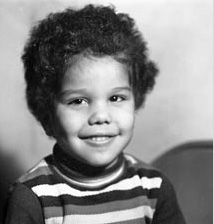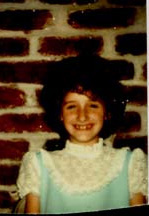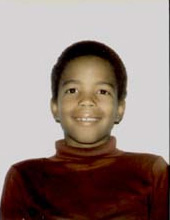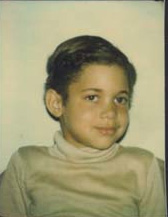When I joined Peoples Temple in 1970, I fell into a job with the Ukiah school district setting up an educational program that I taught in for ten years. From 1970 to 1980, I worked in a Bilingual Program as a Kindergarten school teacher. Instruction was in both English and Spanish. For Spanish speakers it was technically a “compensatory education” class, to help the children learn English faster and more effectively. The community also saw it as an enrichment class for English speakers learning a second language. The class always had a wide range of students and skills, though most of the faster learners were those learning English!
Then – and now – I believe that early instruction in several languages makes all children better able to problem solve: knowing that an idea can be expressed correctly in several different ways leads directly to understanding that all problems can have multiple right solutions, from which we can make choices to meet multiple needs.
For two years my classes were in Ukiah, followed by two years in Redwood Valley, and then back to Ukiah for six more years. In that time I had five Temple children come through my classes. These are my remembrances of them.

Martin Amos: Sharon Amos was his mom, Christa Amos and Liane Harris his sisters. Very independent, engaging and strong-willed kid. Never the shy type. Manipulative, used to getting his own way and almost always smart enough to make it happen.
I remember one occasion after church in Redwood Valley, maybe in 1970, when meetings were still small (50 people). Martin, who was two or three at the time, wanted some candy or cookies. His mom had told him “No!” but he yelled, cried, and carried on, determined to get his way. Sharon usually found it easier to give in, but that night she did not. Martin was put on a blanket (a time out spot) off a ways to the side, while after-church activities continued. For an hour and a half he went on crying, fussing, and yelling – no one paying attention at all. Now and then, he would stop crying long enough to see if anyone noticed, and then continued on fussing. Finally he settled down and stopped. He was much improved after that. Nevertheless, he grew up still getting his own way, and becoming more resourceful at doing so!
When Martin entered my kindergarten, he was used to calling me “Don.” As I explained to Temple kids who went through my class, they needed to be more formal, and call me “Mr. Beck.” He actually tried hard but had a terrible time of it. One morning he came in and said to me: “You’re Mr. D-o-n Beck,” with prolonged emphasis on the “Don.” Martin had a way of solving problems, finding a way that fit what he wanted and what was expected.

Stephanie Swaney: Doxsie Swaney was her mom; Nat Swaney her grandfather. Stephanie was shy and quiet when she entered Kindergarten. Gradually, as the school year progressed, she became more open and confident. She was a very normal kid. Like many, she never really stood out, but was always well behaved and worked hard. For her, Kindergarten was a great place to venture forth, participate, talk and think more – learn more of what she could do. She had a beautiful smile – always – and by first grade, she showed her confidence and only a trace of her beginning-of-school shyness.

Chris Buckley: Minnie Buckley’s youngest son; he had four sisters and a brother. Awesome smile. Good humor. Loved to play: always eager to move around and help me and others do things. Mode of learning was definitely tactile, movement. He had his moments of mischievousness, as children his age have, but he always learned quickly and worked well with others.
On the last day of school, he decided to walk on the tables. It took me awhile to get him down, and to keep others from following his lead. After all, it was a great thing to do! It turned out he didn’t want Kindergarten to end. Walking the tables, he figured, would make us think he wasn’t ready for first grade, and let him stay in Kindergarten! What a resourceful and creative kid he was!
Jimmy Moore: Vicky Moore was his mom, Tommy his brother; Archie Ijames was his granddad. Abundant energy, creative, eager to please. He had no pretense about him. Remembering his bright, sort of Charlie Brown smile, still brings a smile to my face. In Kindergarten, he was somewhat clumsy and always asking questions. Jimmy didn’t go to Guyana, and years later I saw him when he was a senior in high school. In kindergarten I had looked down to see him, but now I had to look w-a-a-y up! He was extremely tall but his smile was just the same!
In Kindergarten, he was like a jack-in-the-box: anything going on around him would grab his eye and he was up and away. He went from one thing to another. He was well intentioned, but he didn’t often finish his work. We made an agreement. Using a two-foot thread, I tied one end to his belt loop and the other to his chair: if he didn’t break it, he got a reward. Though it could break easily if he got up and moved away, it actually worked well. It helped him focus on staying at a task.
My principal, however, was very displeased with the idea of “tethering” students in a chair, so it had to stop. No big deal – Jimmy and I then used a “magic invisible thread” which worked just as well.
Jimmy was a great kid, very eager to do things and help. Always good-natured. Loved responsibilities that let him move about.

Daren Werner Swinney: Wanda Swinney’s son; Tim Swinney was his stepfather. Young, somewhat uncoordinated, tried hard but seemed to lose focus easily. He wanted to play more than work; fact was, he was a young Kindergartener. He was easily frustrated when he couldn’t seem to do well. As he found he could master things with consistent effort he was happier with school by the end of the grade. It was a time of much growing up for him.
Daren had problems in second grade, not doing or finishing work in class. His teacher that year knew he and I were in Peoples Temple, and she and I set up a program for him. Daren had to report to me on his way home with a card marked every day with how he had done. Amazingly this brought almost instant change; his teacher was as surprised and pleased as I was. Daren even reminded her to mark the card when she forgot. He knew he would be “in trouble” if he didn’t do as expected! Somehow, that “daily reporting” was enough to focus him. Years later I wondered if his teacher thought we paddled him; in fact, we had not. We never really had to define what “being in trouble” meant!
Daren was like many of our kids. They needed more of our attention, consistently. Unfortunately we were often too busy to give the extra attention our kids needed. In many ways the activities we provided our kids, opened up much energy that we then couldn’t seem to work with enough – this was one reason we wanted to build a community – a place – where we could do more things more effectively with our children.
(Don Beck was a member of Peoples Temple for ten years. He directed the Peoples Temple children’s choir during its Redwood Valley years and made several trips to Guyana during its pioneer days. Beginning about 20 years after the tragedy, shortly after this site went online, he became one of its most dedicated researchers, transcribing Edith Roller journals, reviewing and analyzing Jonestown records released through the Freedom of Information Act, and compiling them for the first section of documents on the Jonestown Research page. He also contributed numerous articles and remembrances. Most of those writings may be found here.)
(Don died on July 9, 2021, following a lengthy illness. He was 78.)